Are you considering a construction equipment rental for your upcoming project? Renting equipment can be a cost-effective and flexible solution, allowing you to access high-quality machinery without the hefty initial investment. Our comprehensive rental proposal stands out by not only detailing the equipment available but also providing insights into how it can enhance your project's efficiency and safety. To discover the key benefits and options we offer, let's dive deeper into the specifics!
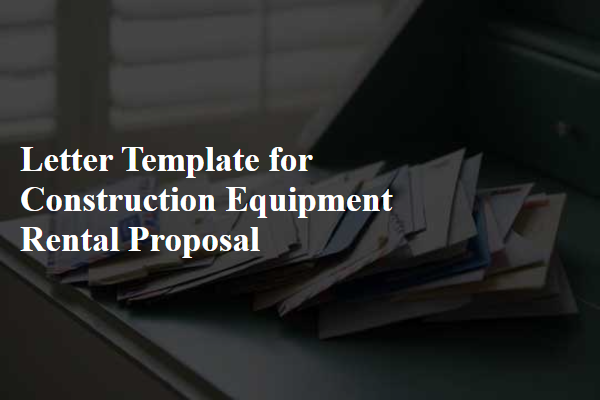
Introduction and Objective
Construction equipment rental offers essential solutions for various projects, from residential developments to large-scale infrastructure initiatives. Companies often require heavy machinery such as excavators, bulldozers, and cranes to ensure efficiency, safety, and deadlines. The objective of a rental proposal is to provide a comprehensive overview of available equipment, terms of leasing, and competitive pricing models that align with project demands. By emphasizing reliability, superior customer service, and well-maintained machinery compliant with safety regulations, the proposal aims to facilitate a partnership that boosts productivity while minimizing costs for contractors working in dynamic environments.
Equipment Details and Specifications
Construction equipment rental services often provide a range of machinery designed for various tasks like excavation, lifting, and material handling. For example, the Caterpillar 320 excavator features a 130 horsepower engine, capable of digging depths up to 20 feet, ideal for trenching projects. The Genie S-65 boom lift, with a maximum working height of 65 feet, allows workers to safely access elevated areas for inspections or installations. Rental agreements typically include details such as hourly, daily, or weekly rates, maintenance provisions, and delivery schedules, ensuring that clients receive reliable equipment tailored to their specific construction needs. Additional features may encompass fuel efficiency ratings and operator safety protocols to enhance productivity and compliance on job sites.
Rental Terms and Conditions
Construction equipment rental agreements outline essential terms, conditions, and responsibilities between rental companies and clients. Key components include rental duration, typically specified in days or months, which affects pricing structures and availability. Equipment types, like excavators, bulldozers, or scaffolding, should be detailed, alongside specifications such as weight capacities and operating dimensions. Pricing models may incorporate daily, weekly, or monthly rates, with additional charges for maintenance or damages incurred during the rental period. Delivery and pickup services, often available in metropolitan areas like New York City or Los Angeles, should be addressed, including any associated fees. Clients must acknowledge insurance requirements to cover liability, accidents, or theft. Equipment operation guidelines, including safety protocols mandated by OSHA (Occupational Safety and Health Administration), are critical to protect both the rental company and the client. Finally, a clear cancellation policy ensures both parties understand any penalties incurred for early termination or rescheduling rental agreements.
Pricing and Payment Structure
In construction equipment rental proposals, pricing and payment structures play crucial roles in ensuring clarity and financial feasibility for both parties involved. Typically, rental fees are calculated on a daily, weekly, or monthly basis, depending on the equipment type, such as excavators, bulldozers, or cranes. For instance, a high-capacity excavator might cost around $500 per day, whereas a smaller skid steer loader could be available for approximately $200 per day. Additionally, many rental companies require a security deposit, often ranging from 10% to 30% of the rental cost, depending on the equipment's value. Payment methods can include credit card transactions, bank transfers, or direct debit, providing flexibility to clients. Clear terms regarding late payment penalties and maintenance responsibilities ensure smooth transactions and uphold the equipment's performance standards throughout the rental period.
Contact Information and Sign-off
Construction equipment rental proposals are essential documents for businesses seeking to provide equipment, such as excavators, bulldozers, or forklifts, for various projects. These proposals typically include crucial elements such as rental terms, pricing (often detailed per hour or day rates), and insurance requirements. To streamline communication, it is vital to include comprehensive contact information, including the company's name, address, phone number, and email. Sign-off sections often feature the proposal author's name and title, reinforcing professionalism. Additionally, contact information helps facilitate smooth discussions regarding the equipment's availability and project specifics, ensuring timely responses and successful project completions.

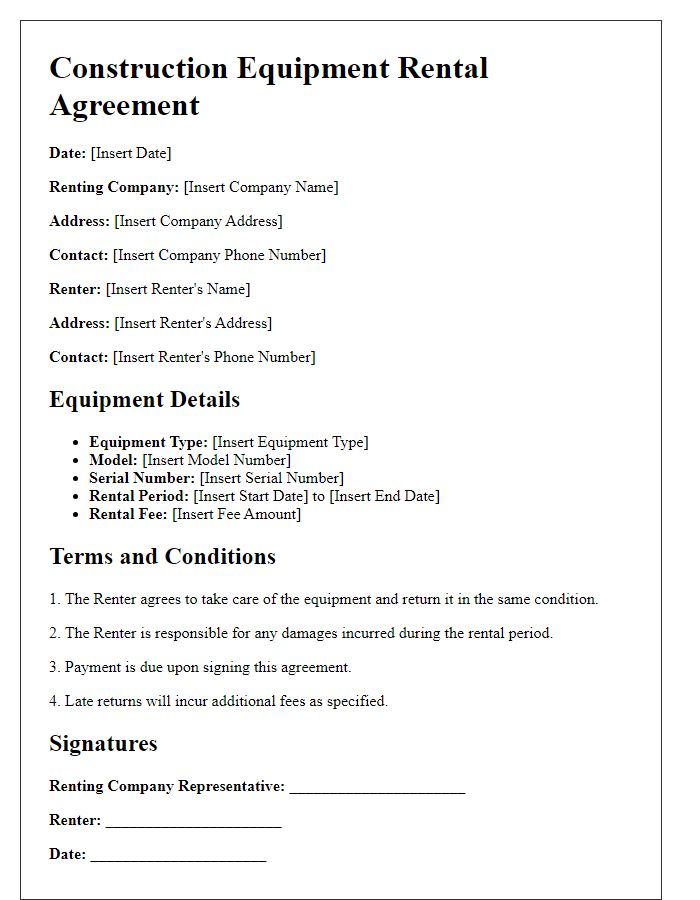
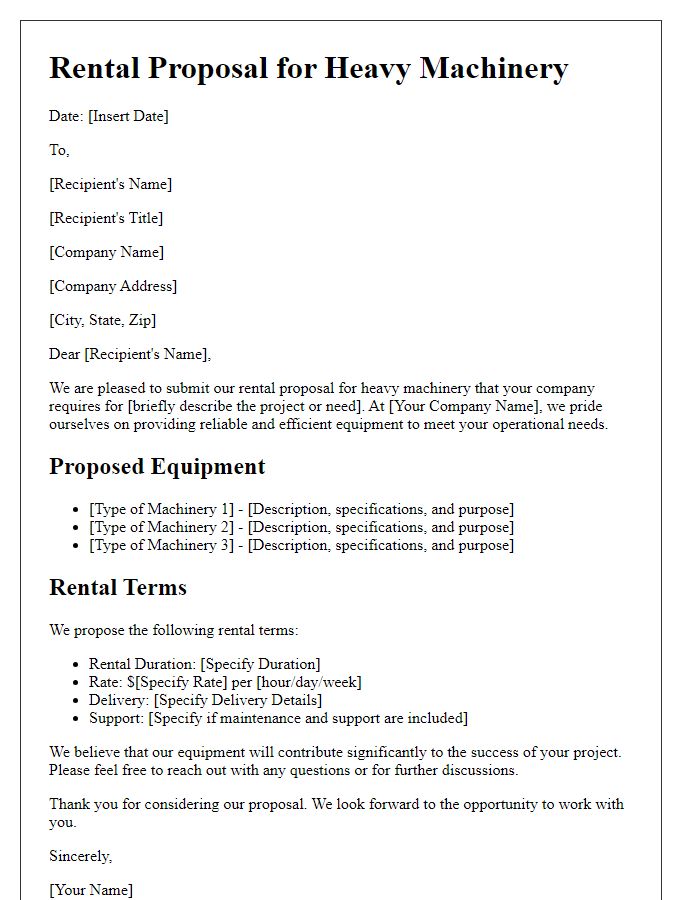
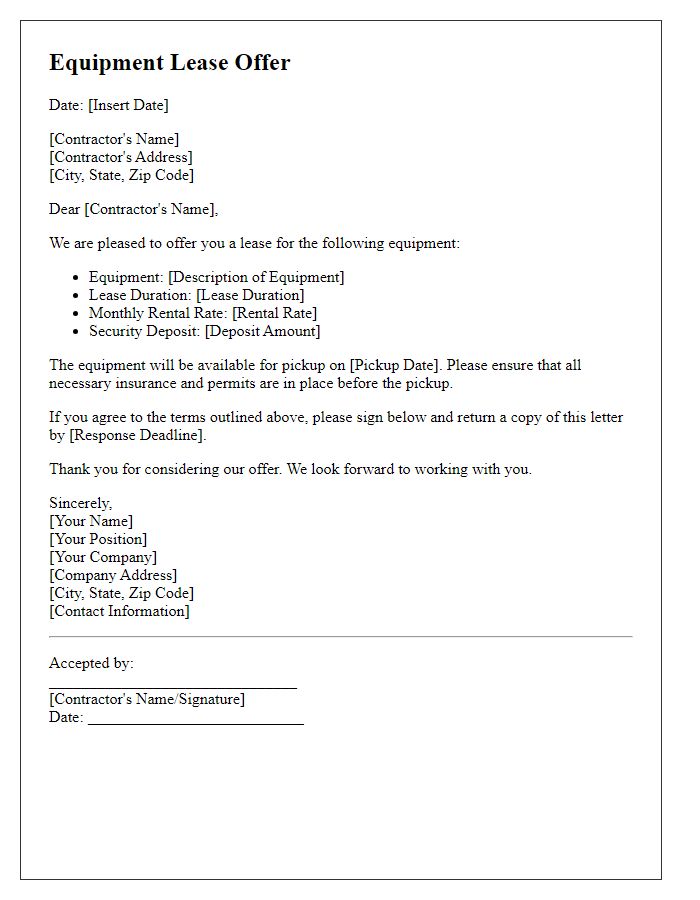
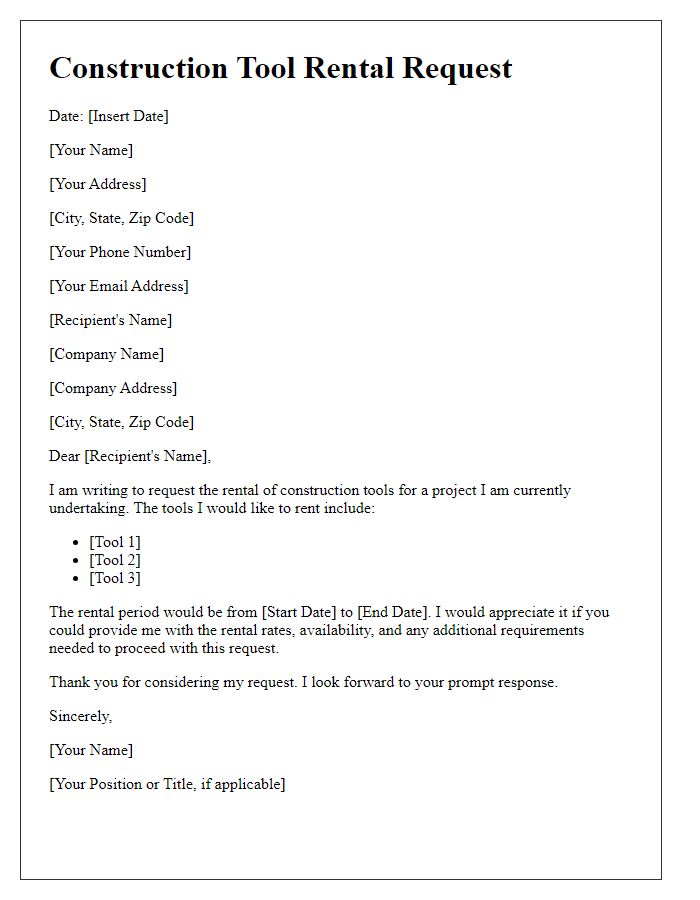
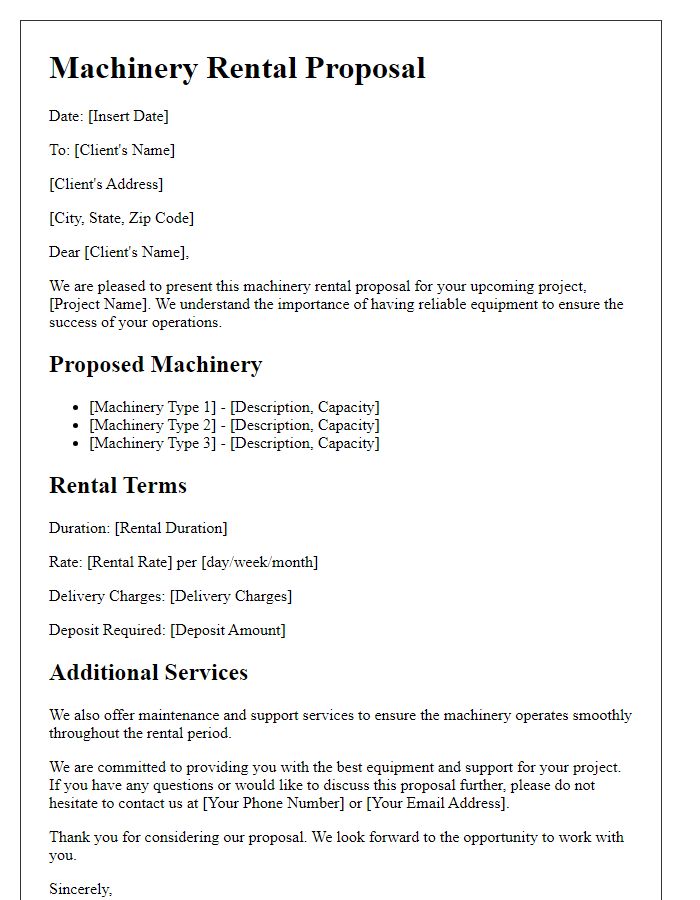
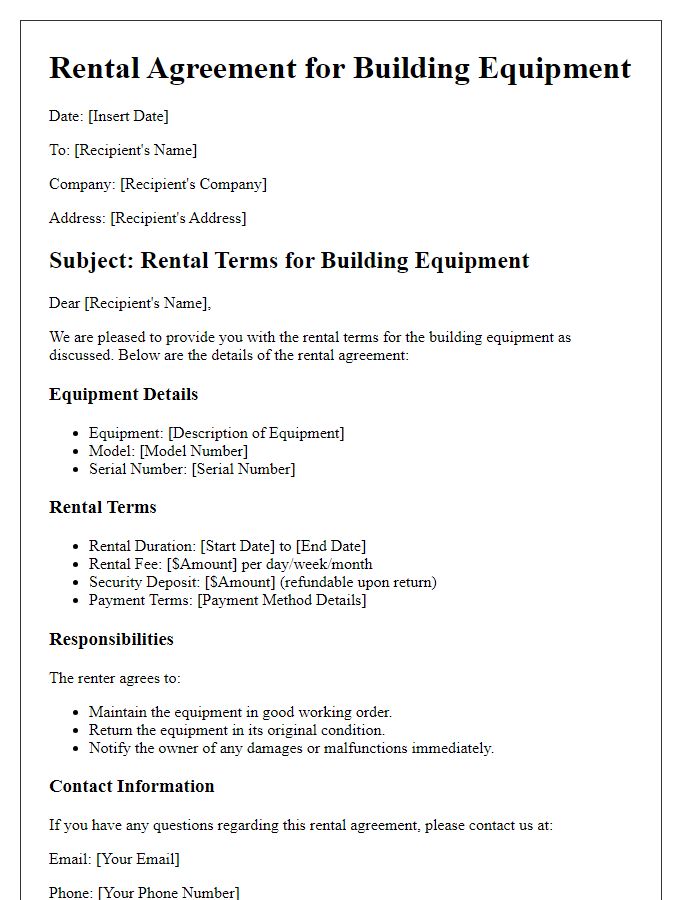
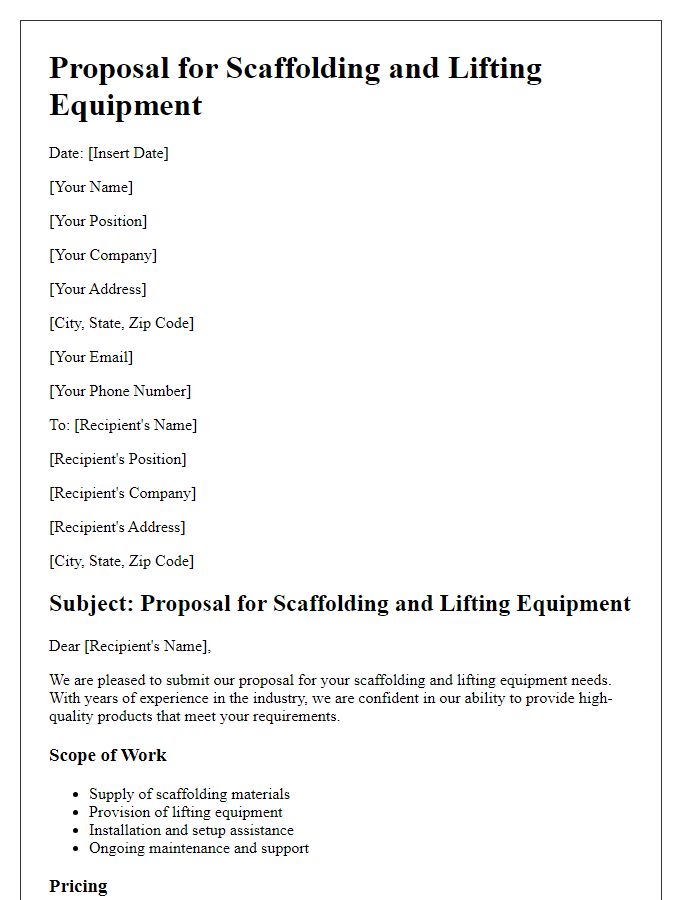
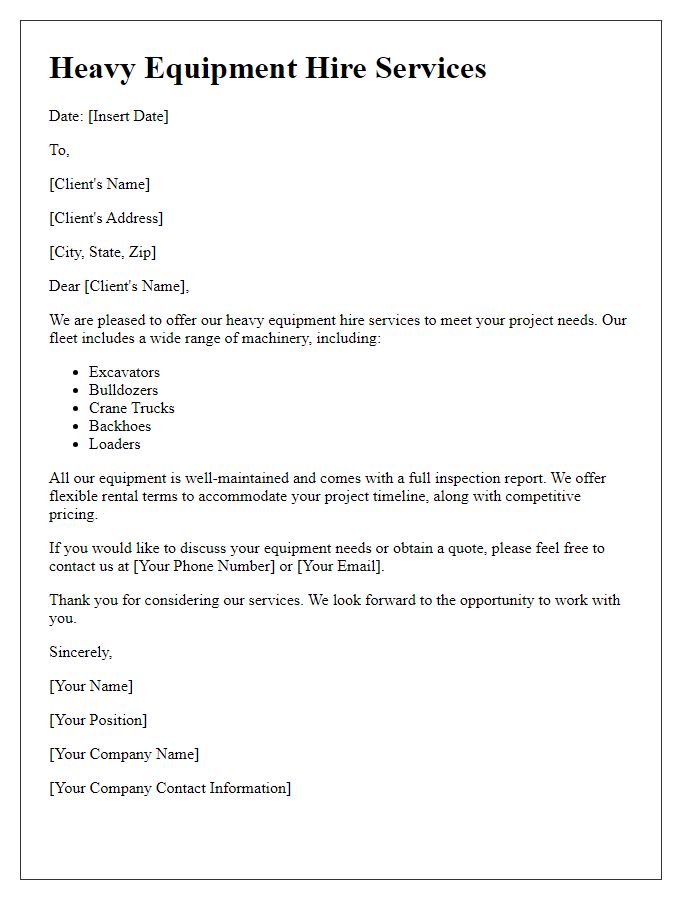
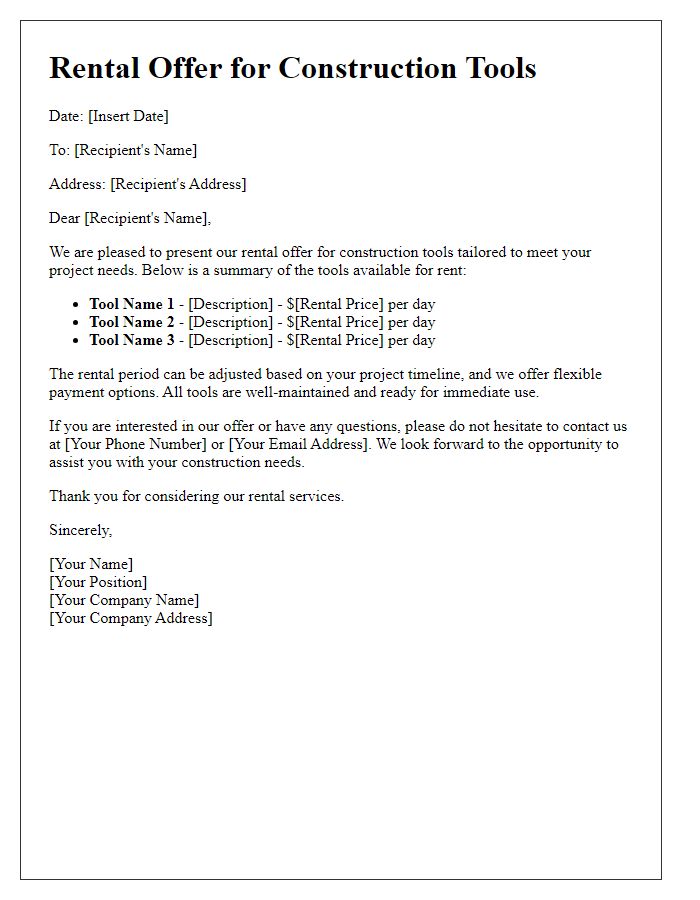
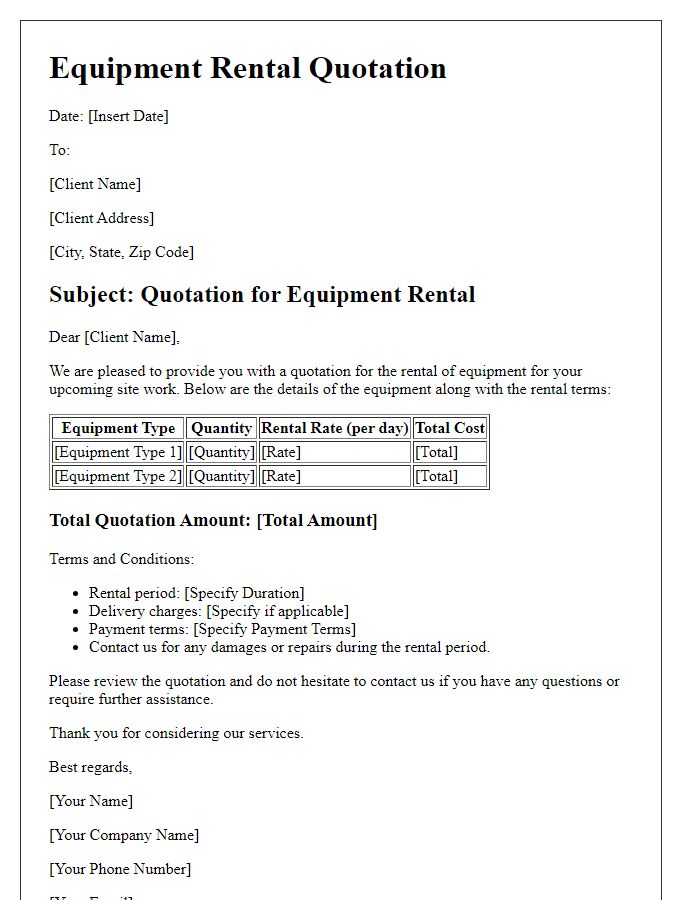


Comments